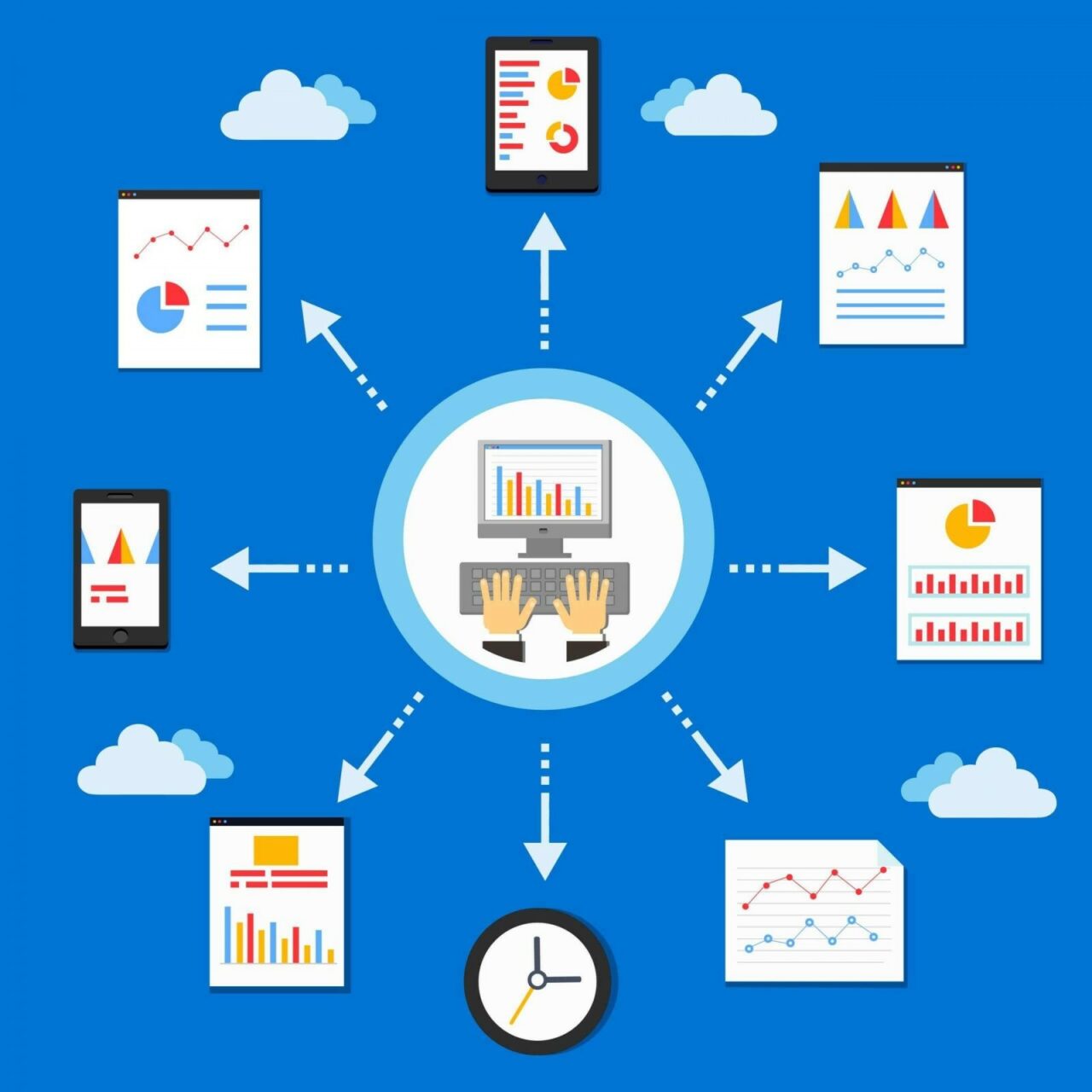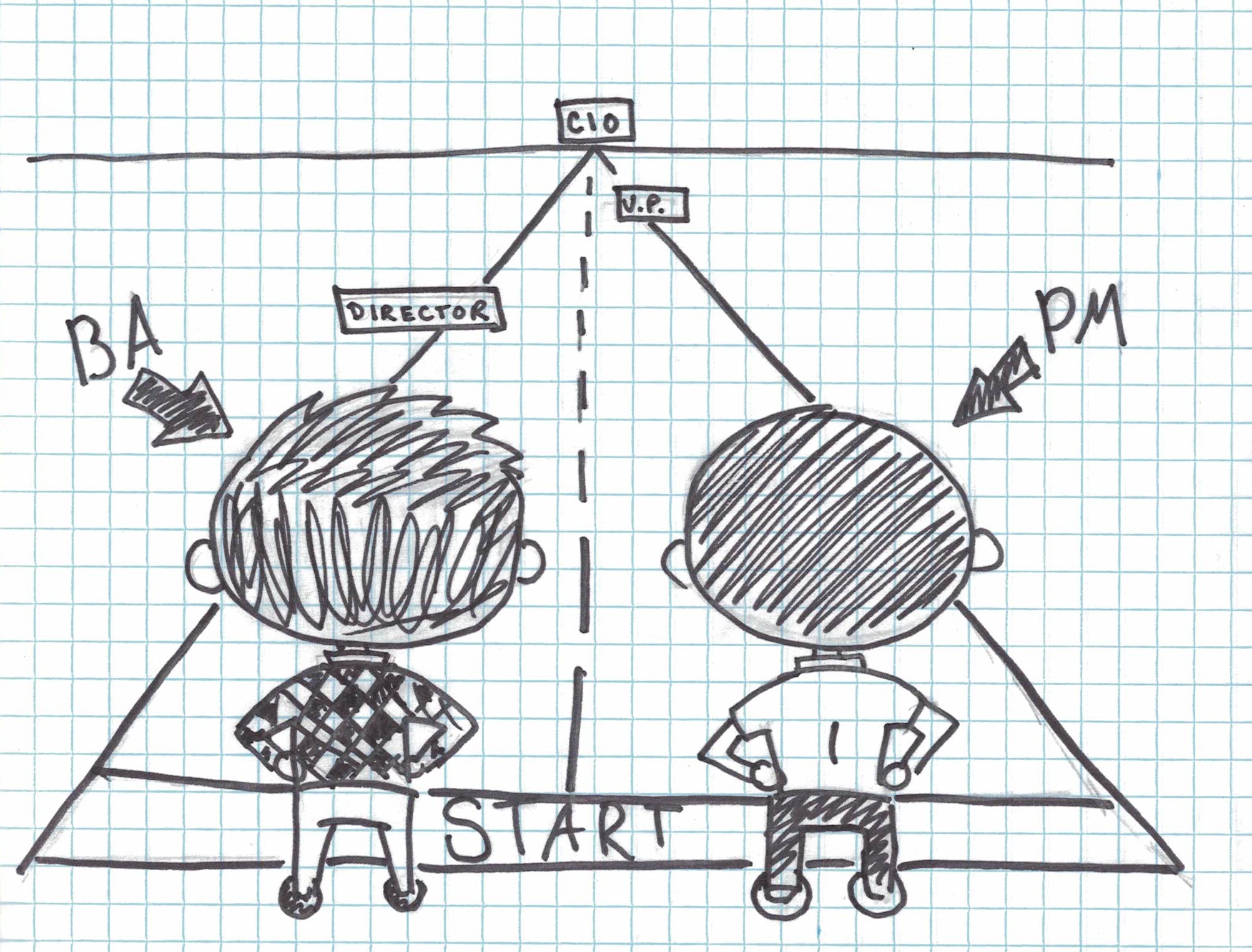Table of Contents
Really!
What’s the difference?
Aren’t the two same – project manager/program manager?
I know many of you will react like this after reading the title. But let me tell you, though they sound similar they are two different career option if one wants to pursue.
Both the project manager and program manager do share tasks which overlap in terms of responsibility etc but are fundamentally different. Both have unique goals and challenges.
Before getting into the nitty-gritty of how they are different. First, let us understand a few concepts.
What is a project?
A project involves a series of tasks and responsibilities which needs to be completed in a defined period to reach the specific goals. A project is defined by a budget, resources, cost and time constraints.
There are a set of inputs given to achieve certain outcomes.
Projects have well defined short terms goals and completion date which is decided basis complexity and requirement of the goals.

An example of a project can be planning an office event or a client party is a project. Because the event or a party is arranged for a specific reason, date and time. There is also a budget allocated to it. It has a certain goal which needs to be achieved. So, this particular event is a temporary project with specific constraints with start and end date.
Development of certain software to increase employee productivity or creating an engaging website to increase sales of the business can also be said as projects
In simple words, projects are temporary with enclosed task and fixed duration.
Enroll in our PMP Certification today and develop a strong foundation in the principles of project management.
Characteristics of a project
- Scope of work
- Resources
- Timelines
- Quality
- Risk Involved
What is the program?
A program is defined as multiple projects aligned together to achieve a certain long-term objective. All the projects under one program are interconnected and they complement each other.

It can also happen that an outcome of one project is input for another project. Each project builds off each other to achieve a larger picture. It helps the overall management of all projects to ensure centralized communication between different project teams.
Program management helps to control:
- Consistency
- Alignment between multiple teams
- Project timing
- Pacing of different projects
- Fast approval of interconnected projects
A well-planned program not only gets successful but also drives strategic benefits and organizational growth.
Difference projects and programs
8 difference between program and project.
| Point of Differentiation | Project | Program |
| Definition | A project is a short term which has certain goals to be achieved | A program is a set of multiple projects with long term objective to be achieved |
| Focus Area | Is focussed more on content | Is focussed more on context |
| Time | Are short term with fixed start and end date | Is long term |
| Units | Single functional units | Multiple functional units |
| Nature of Work | Is more technical in nature | It is more strategic in nature |
| Result | Produces Output | Produces outcomes |
| Outcome | It has specific deliverables | Are more basis long term benefits |
| Success | Success is measured by product quality, timeliness, cost-effectiveness, customer feedback etc | Success is measured as an outcome when the needs are met and benefits are gained for which the program was created |
Who is a project manager?
A project manager is a person responsible for the planning and execution of a project. The success or failure of a project highly depends upon the overall execution and decisions taken by the project manager.
A project manager has to manage budget, resources, timelines, costs etc to meet the desired target. One has to align his team to achieve the overall objective as per the project guidelines.
It is the central point of contact for his team members, program manager, leaders, management, client etc. They are responsible and accountable for the progress and changes of the project.

A project manager has to follow the tactical approach in terms of his working. He has to focus on the execution and completion of a project.
The functional element of the project includes:
- Meeting Deadlines
- Staying within the approved budget
- Delegation of tasks as per the skills of each team member
- Quality of work
- And most important completion of the project
A project manager is an expert in his domain. Let us understand it better with an example. In an architecture firm, a project manager is electrical engineers, civil engineer, painters, plumbers. All of these roles require specific skills.
Role of a project manager
A project manager plays a lead role in managing a project. A project manager is responsible for all aspects of the project be it budgets, resources, stocks, deadlines, schedules. Everything falls under his remit.
They also have to manage issues, risks, challenges, the scope of work, changes, and all the members of the team.
A project manager has to be vigilant on the ongoing project. He has to keep track of all the minute things. A project’s success or failure highly depends on his decision-making abilities and working experience.
His role also involves keeping the manager updated with the progress and regular feedback of the project.
A good project manager should be highly organize and flexible. If one thing slips, the entire project goes for a toss. H has to be extremely good in his planning work.
Another important role of the project manager is to manage his team.
This is one of the difficult things to do. He has to ensure that there is harmony in the team, no ego clashes. And also has to take care of what work should be assign to which member of the team.
List of all tasks performed by a project manager:
- Understanding the project
- Defining the scope of the project
- Developing policies and procedures to meet overall objectives
- Planning
- Preparing timelines and task
- Assignment of the task to team members
- Communicating clearly to his team on what is expected from them
- Aligning his team members with the overall objective
- Budgeting and finance
- Taking approvals on cost estimation
- Working as per the budget
- Meeting timelines
- Delegation of both responsibility and accountability to his team members
- Completion of tasks
- Coordinating with all the parties involved
- Managing time and resources
- Reporting the progress to the program manager
- Working closely with customers/clients as per their needs and requirement
- Monitoring the progress of both project and team
- Answering all the queries and concerns of the team member
- Risk management
- Preparing final reports and documentation
To conclude, there are 3 key roles of a project manager
- Managing all aspects of the project – resources, budget, schedule, feedback, team, project scope, financial etc.
- Teams and their performance
- Projects success
Who is a program manager?
A program manager is a professional whose job is to oversee multiple projects. He prepares the strategy and overall objectives of the program. He assesses the impact and risk on the business.
Their responsibilities include:
- Recruiting teams
- Implementing strategies
- Measuring ROI
- Taking initiatives
Taking the same example of an architect firm. A program manager is an architect who designs the blueprint. He sketches the overall layout.
He has project managers under him who are experts in their field and they are responsible for getting the work done such as plumbing, painting, electric wiring etc.
Each project manager is responsible for the project he is assign. An electrical engineer’s projects end when all the work relate to electrical wirings is finish.
While a program manager is responsible for joining all these project managers job and delivering the entire house. He has an extended responsibility as after-sale/post-delivery service.
Role of a program manager
A program manager is a professional who strategizes the business objective. His key role in the alignment of all the projects towards the overall achievement of the business goal.
The program manager defines budgets, the scope of work, allocates resources at a macro level. Defines a broad perspective of the overall projects.
One also prepares the program’s milestone and program schedule for his project managers to follow. They assigns a budget to each project based on its importance, requirement, contribution in the overall objective of the program.
Also, he is not involved in the overall functioning but needs the progress report of the overall progress. All he wants is the jobs need to be done.
Qualities of a good program manager:
- Good strategist thinker
- Delegates work
- Understands prioritization
- Do not get involved in minute details
- Trust his project managers
- Razor-sharp skills
List of all tasks performed by a project manager:
- Defining strategies and objectives
- Analysing and defining policies, goals, and targets.
- Developing strategies on a regular basis as per the need
- Evaluating success metrics
- Recruitment of project teams
- Overseeing collaboration across all the project teams
- Keeping a track of the progress of all the projects
- Maintaining relations between different project leaders
- Evaluating overall program and project progress
- Measuring ROI
To conclude, there are 3 key roles of a project manager
- Overseeing several projects
- Managing multiple teams
- Delivery of projects as per their timelines
The similarity between the project manager and program manager
As we discussed earlier there are many overlapping responsibilities of project and program manager. Some of them include:
- Task boards – This is like a dashboard, wherein responsibility, task status is clearly mentioned. A project’s success is dependent on multiple people, so this chart helps to keep a track on the progress of all the team members involved as per their assigned work. This summary sheet provides a bird’s eye view on exactly who is working on what and their progress at a single glance.
- Templates – It is best to best to have templates for repetitive work. Having templates saves a lot of time and energy. Both program and project managers create templates as per their requirement.
- Flexible working style – Both project and program managers need to have a flexible style of working. It is important that they give freedom to their team members to work as per their comfort level. This style also them to make changes during the process as per the project requirement.
- Collaboration – Both project and project managers have to keep a track of all the inventory, assets, update, progress on the project on a continuous basis.
Having collaboration with all the parties involve, manager, directors, team members, clients, cross teams etc is extremely important.
Their responsibilities may be the same but the scope of work is different. A program manager has a much larger piece to take care of.
Difference between the project manager and program manager
By now am sure, you must have understood that project and program managers are not the same. They are fundamentally different in terms of roles and scope of work.

A program manager has a broader perspective on the overall project. Plan according to long term goals. Then define the budget and set the schedule for the program. We are responsible for all the projects which fall under their program.
Project managers are very functional in their working. They coordinate with cross-functional teams and require to complete their project.
Their job is to start and finish their project within the given timeframes, resources and budget.
A program manager creates a roadmap for the entire program, across all the projects based on organizations overall strategy. While a project manager follows a roadmap. He creates his timelines and schedule for completion of the project.
His planning includes handling bottlenecks, cross-functional dependencies, tracking progress.
A program manager is responsible for the delivery of the entire program on company goals. His area of focus is on both internal and external tasks.
A program manager defines the best practices, streamline the processes, negotiates on deals etc. His scope of work is big and involves strategic thinking and decision making. His decisions directly impact the company’s overall business.
While a project manager scope is limit to the project. He is responsible for on-time delivery of the project.
He defines the functional scope of work, assigns responsibilities, sets the budget for his project and helps his team members to attain the goals.
The program manager is responsible to deliver ROI of the entire project. They also keep a track of budgets, risks, challenges, resource utilization, schedule, timelines and final delivery of the project.
A project manager is responsible for ROI pertaining to his project.
Here’s another analogy to untangle the two of them. A program manager is like a movie director. He is responsible for the storyline, delivery and overall look and feel of the film. His job is to direct and guide the unit as per the requirement.
While, he will have multiple skilled project managers proficient in their field like casting director, set designers, promo director, graphics director, cinematographers, editors, technicians, costume directors, choreographers etc.
They will have the unique skillset for performing a specific task.
A director will not teach the actors dance moves or he will not arrange for the props required on the sets.
Project managers job will to get work done from their team members as per the director’s overall vision about the film.
| Point of Difference | Program Manager | Project Manager |
| Scope of work | A program manager will oversee a group of projects | A project manager takes care of individual projects |
| Deliverables | Program managers have long-term deliverable. Their work is extended even after the entire project is over. | They have short term deliverables. Their job ends once they have submitted the outcomes to their program managers. |
| Function | They are more of a strategic thinker. They define business objectives | Project managers are tactical workers. They focus upon the day to day work for the team members. |
| Timelines | Program managers work upon long term deliveries. | Project have defined timelines in which the manager have to deliver the project |
| Budget | Program managers define the budget of the entire projects and accordingly approves as the importance of the project | Defines budget as per his project requirement |
| Success | Success is defined as an outcome i.e. benefit for long term like the impact of change in policy etc | The output is a tangible thing, is visible in the job of a project manager |
| What and How | Program manager sees the bigger picture. Are all projects aligned with each other? What are the requirements of each project manager to run their respective project smoothly? Etc | A project manager what and how are based on technical things. How it will be done? What should be done to make it more achievable? etc. |
To conclude 3 major difference:
- Program managers supervise multiple projects; project managers look at individual projects
- Program managers focus on long-term business objectives; the focus of project managers is on short-term goals and concrete deliverables
- Program managers are strategic in their functionality; project managers are tactical in their work practise.
Still, confused, about the role performed by the project manager and program manager.
Here’s another analogy.
A program manager is like a head chef in a restaurant. He decides the menu, comes up with unique recipes to serve, cooks the dish, teaches his team members, helps in presentation of the dish.
This is his core work related to food. But he is not responsible for microwave not working or serving the customer or procurement of food items.
All these tasks are done by respective team leaders and project managers.
The chef can only guide the procurement team with respect to the quality of vegetables etc. While it is the job of the procurement team to arrange as per the need on a daily basis.
7 key points of differentiation, to put in a simple word:
How much do they make?
Project management is one of the fastest-growing sectors in our country. And project manager average salary is close to 13 lakh per annum but there is no limit for the right candidate.
And for a program manager sky is the limit.
Hope you have got clarity on the roles and responsibilities perform by the program manager as compare to the project manager.
Are you ready to make your career in any of the two fields?
Write your queries in the comment section below if you have any. And we would be happy to help.
Recommended Reads:
- Top 9 Project Management Courses in Kolkata
- PMP certification exam cost
- TOP 20 PMP Exam Questions and Answers
- Is PMP Certification Worth It in India?
- 10 Best PMP CERTIFICATIONS IN SINGAPORE
Also Check this Video
Recommended Programs
PMP® Certification With
Training Course
98.8% Pass Rate in PMP® Exam Protected by 100% Money-Back Guarantee | PMP® certification is the gold standard for Project Management professionals.
Agile Project Management
Certification Training
An exclusively designed Program by professionals working in international firms across San Francisco, Colombo, Melbourne and Hong Kong. Become eligible for sought-after Agile & Scrum Professional jobs in Fortune 500 Companies by gaining hallmark of a quality certification on Agile Project Management.
Design Thinking Course by
Henry Harvin® Academy
Ranked no. 2 Design Thinking Course in India | Trained 1,835+ participants | Get exposure to 10+ projects | Acquire detailed training in applying Design Thinking principles | Both classroom and live online options available
Explore Popular Category
